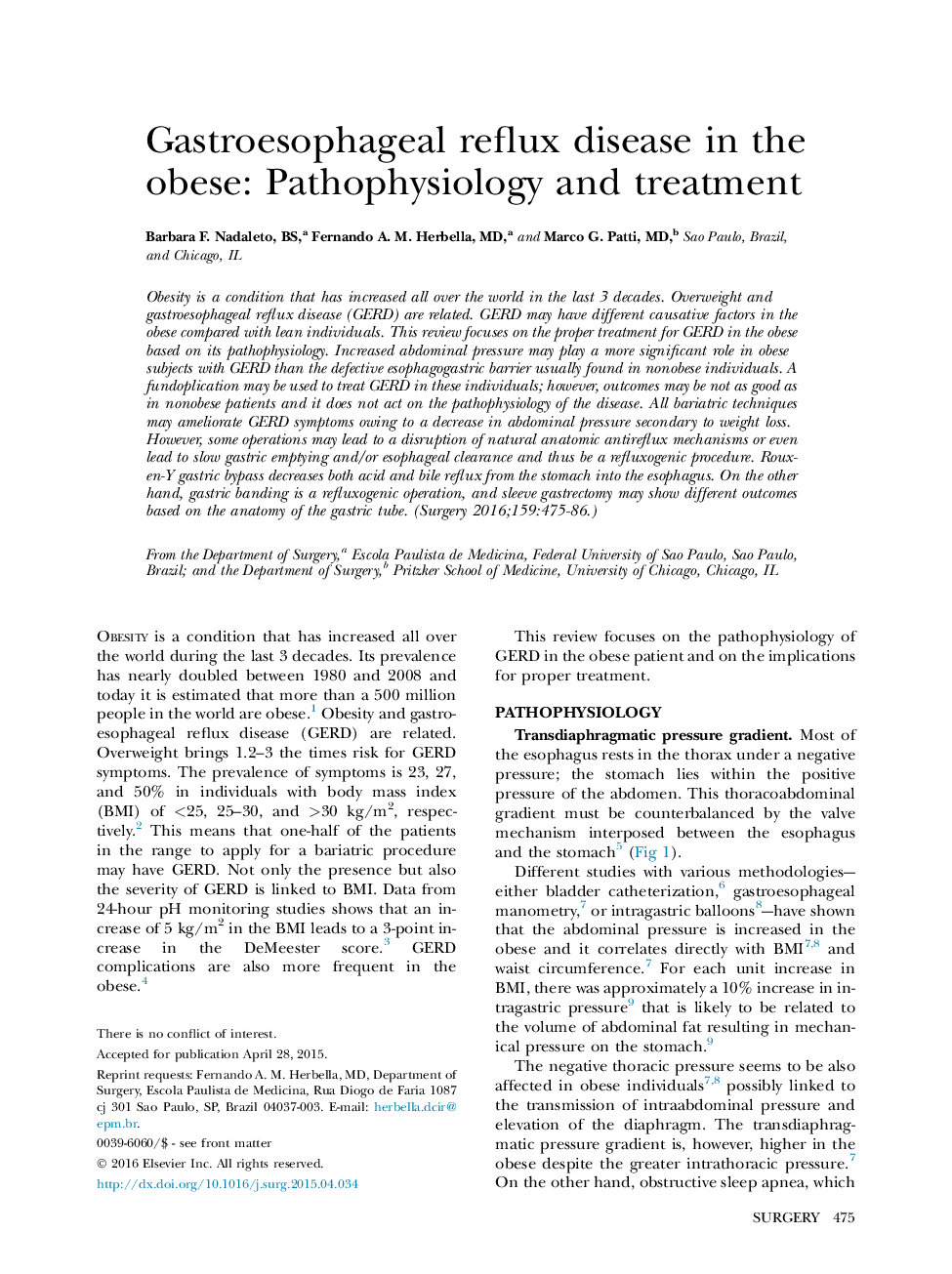| Article ID | Journal | Published Year | Pages | File Type |
|---|---|---|---|---|
| 4306457 | Surgery | 2016 | 12 Pages |
Obesity is a condition that has increased all over the world in the last 3 decades. Overweight and gastroesophageal reflux disease (GERD) are related. GERD may have different causative factors in the obese compared with lean individuals. This review focuses on the proper treatment for GERD in the obese based on its pathophysiology. Increased abdominal pressure may play a more significant role in obese subjects with GERD than the defective esophagogastric barrier usually found in nonobese individuals. A fundoplication may be used to treat GERD in these individuals; however, outcomes may be not as good as in nonobese patients and it does not act on the pathophysiology of the disease. All bariatric techniques may ameliorate GERD symptoms owing to a decrease in abdominal pressure secondary to weight loss. However, some operations may lead to a disruption of natural anatomic antireflux mechanisms or even lead to slow gastric emptying and/or esophageal clearance and thus be a refluxogenic procedure. Roux-en-Y gastric bypass decreases both acid and bile reflux from the stomach into the esophagus. On the other hand, gastric banding is a refluxogenic operation, and sleeve gastrectomy may show different outcomes based on the anatomy of the gastric tube.
